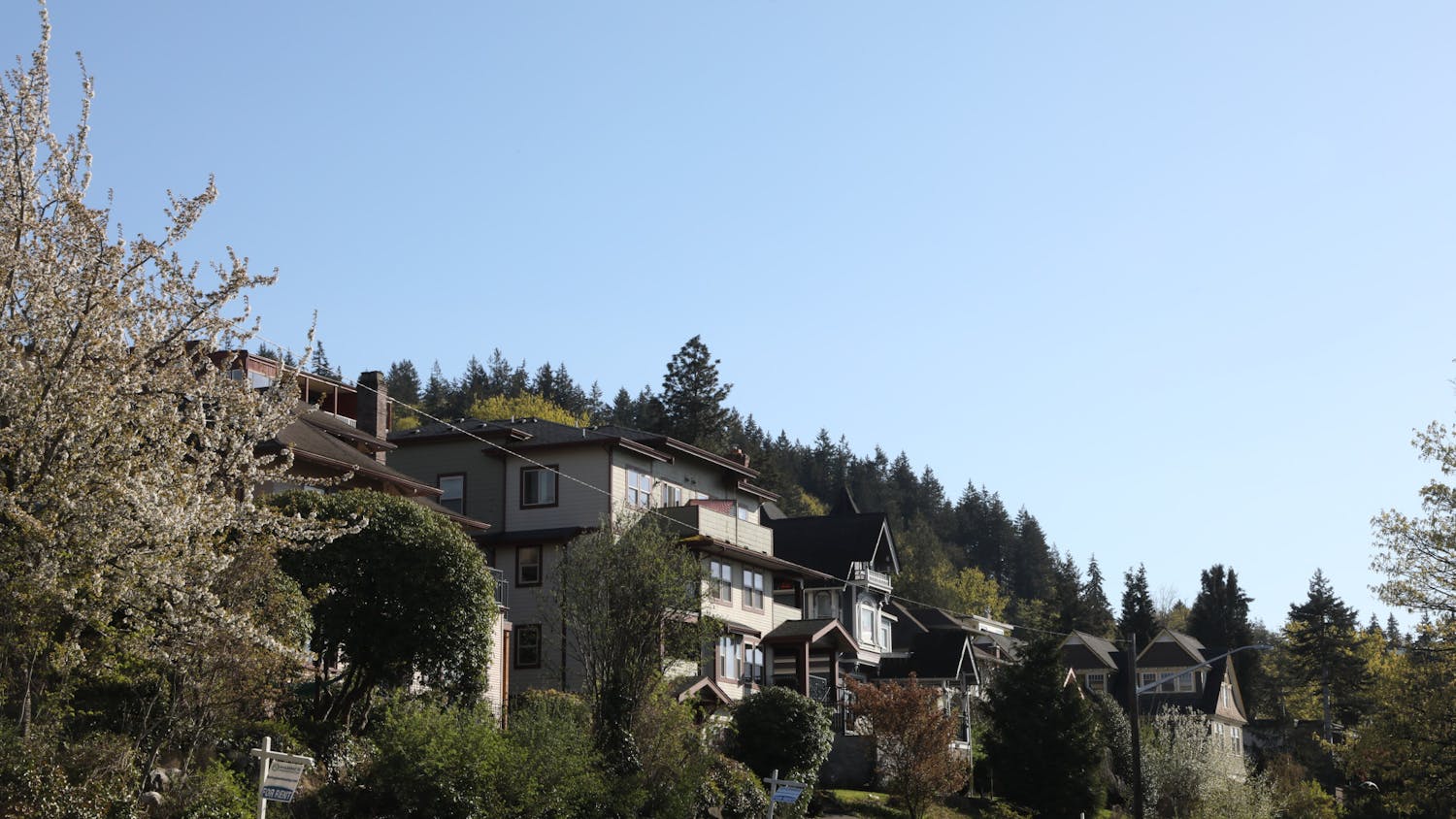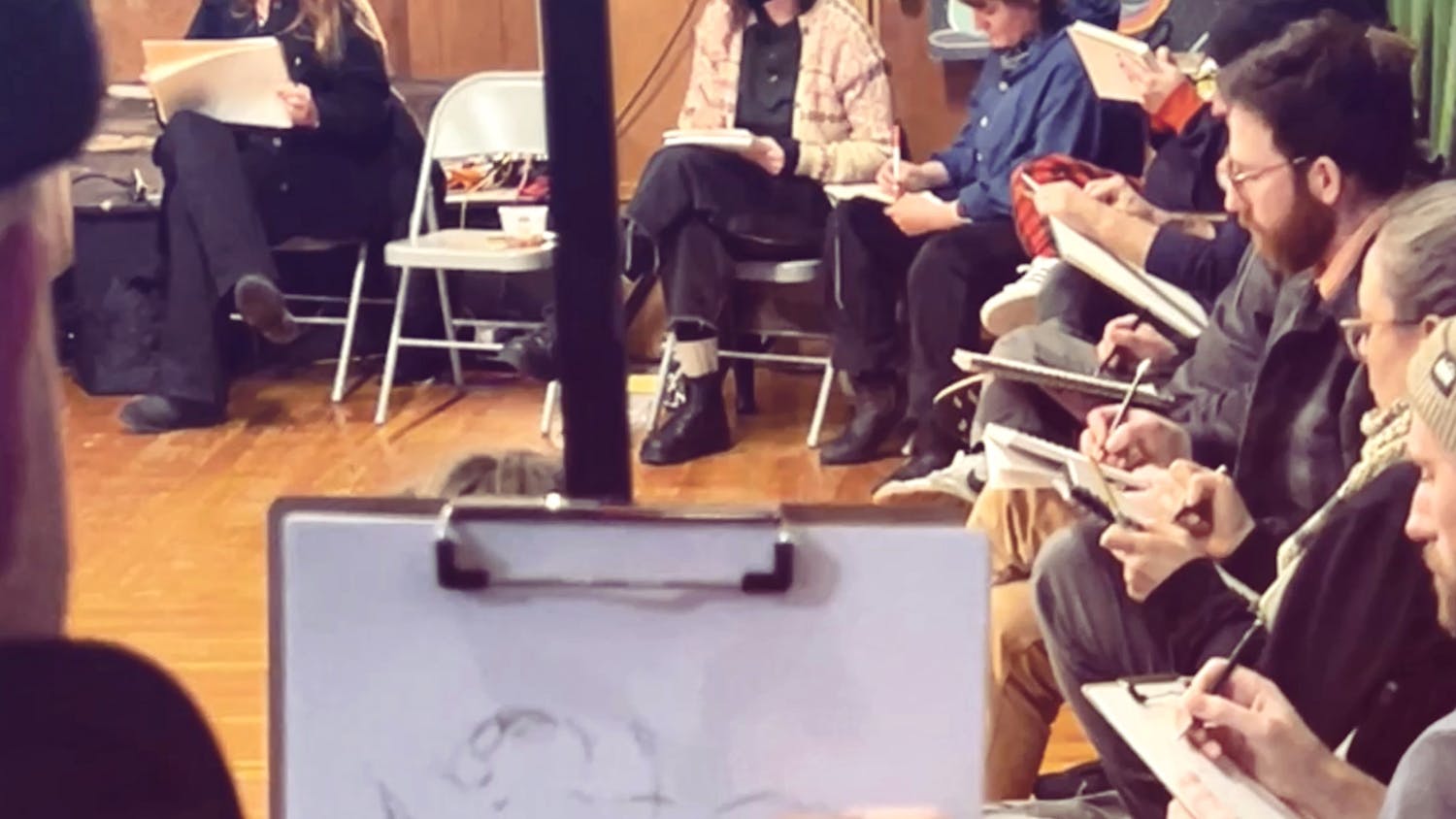Illustration by Cole Sandhofer, background courtesy of North Coast Journal By Kyra Planetz As soft jazz melodies drifted through the air, the heat from a sunny afternoon was made bearable by the cool breeze and breathtaking views of Bellingham Bay. Crowds of people meandered through dozens of tented booths scattered around Zuanich Point Park, while others lay in the grass soaking up the sun, listening to the musicians or people-watching. Such a tranquil scene was host to Bellingham Budfest on Sunday, July 14. The first-annual event celebrated cannabis culture through education in hopes of legitimizing and normalizing the highly stigmatized plant, according to the Bellingham Budfest website. The festival included live music, educational panels and a 21 and up zone with local farms and dispensaries stationed at booths. Vendors sold food, art, clothing and cannabis-related paraphernalia. Co-founders of Budfest and members of the Cannabis Alliance, Stacy Bloch and Amanda Mac, have been working on creating the event since last August. Since the state-wide legalization of cannabis in 2012, Washington has benefitted from more tax revenue, users have access to tested products and more law enforcement resources have been “freed up” according to Bloch, who has been a cannabis advocate for years. “We’ve worked a long time to get to this point in cannabis policy reform, we’ve got a long way to go still, but there’s definitely cause to celebrate after decades of seeing people be incarcerated or die because of lack of access to medicine,” Bloch said. Although the use of recreational and medical cannabis has been legalized in many states, such as Washington, Colorado and California, it is not currently federally legal. The stigma surrounding cannabis is still very prevalent in today’s society, according to Bloch. Prior to the Marijuana Tax Act of 1937, cannabis was not federally criminalized and was even used to treat illnesses, according to the Drug Policy Alliance. As the government needed to find new ways to detain and deport Mexican immigrants, cannabis became synonymous with criminal activity. The term marijuana, the Spanish word for cannabis, was then popularized in order to deter potential users even more. Propaganda films such as “Reefer Madness” depicted users going insane and ruining their lives after smoking cannabis, according to the Drug Policy Alliance. A board member of the Cannabis Alliance, Keith Boyce, said an event such as Budfest can bring general acceptance of the plant and break down negative attitudes surrounding its use. “It's been ingrained in people’s brains that this is a bad thing and people’s minds will only change when they’re ready to accept the change,” Boyce said. “If they can see more events like this, see more people that are everyday users, they will see that it’s an okay substance. They don’t have to use it if they don’t want to but they don’t have to be scared of it.” Along with community members, government officials also attended the event in support of cannabis consumption. Bellingham City Council member and mayoral candidate Pinky Vargas, City Council Ward 5 candidate Lisa Anderson and 40th District Sen. Liz Lovelett all spoke at the festival. Anderson addressed the crowd saying, “I’m the face of a typical cannabis user,” and shared her story. She told onlookers that because of an allergy, she uses cannabis to treat pain and believes in its benefits for everyone. According to The Cannabis Alliance, Whatcom County has more I-502 licensees – companies that produce, process or sell cannabis – per capita than any other county in Washington. Whatcom County is home to 26 retailers and 79 producers and processors, according to 502data.com. Trail Blazin’ Productions is one such company that produces cannabis. It was the first cannabis farm permitted to open in Bellingham and owner Danielle Rosellison believes in the future of the plant and hopes it will continue to benefit the economy. “‘Cannabis and hemp will save the world,’ that just seems like a really big statement to make. But the more you learn about it and you learn about all the things that it does, whether it’s medicinal for the people, or that it can be for textiles, or fuels, or plastics, or hemp cream, maybe it can [save the world],” Rosellison said. Besides reducing stigma and educating people on the economic and health benefits of cannabis, another goal of Budfest was to prove an event such as this can be secure and responsible, Bloch said. The festival was open to all-ages, alcohol-free and even offered participants reduced-fare Uber trips to the event and back, making sure no one drove under the influence. Bloch said, unlike many alcohol-centered events that can get out of control, Budfest is tame and peaceful. “Our goal is to make this something that happens every year and shows our local community, the state and maybe even the country how festivals like this can be done and be safe and responsible—and a heck of a lot of fun,” Bloch said. In the future, Bloch hopes the festival will grow exponentially and include more vendors, artists and panelists. He also hopes more politicians will advocate for cannabis in order to reduce the stigma and federally legalize recreational and medical use. Bloch encourages people to vote for politicians in favor of the cannabis industry and looks forward to many more years of celebrating cannabis culture at Bellingham Budfest.





